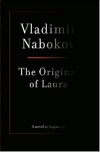In J.G. Ballard’s short story “The Index,” a two-paragraph editor’s note introduces an index that is the only surviving portion of a long manuscript. The manuscript itself—which the editor says may be a fake or a disguised roman a clef—purports to have been the autobiography of “physician and philosopher, man of action and patron of the arts, sometimes claimant to the English throne and founder of a new religion, Henry Rhodes Hamilton.” HRH, as the shorthand used in the subsequent index goes, came into contact with virtually all of the key figures of the World War II and post-war eras – a heretofore hidden but quite influential historical personage. The sly brilliance of Ballard’s story is that his alphabetically-ordered index manages to tell a shorthand version of HRH’s remarkable, frequently absurd life that advances through time as the index progresses toward its inevitable end at “Z”—whereupon the name of the indexer, Bronislaw Zielinski, appears. His entry, representative of the story as a whole, reads:
Zielinski, Bronislaw, suggests
autobiography to HRH,
742; commissioned to
prepare index, 748; warns
of suppression threats, 752;
disappears, 761
Unlike Vladimir Nabokov’s posthumously published text, The Original of Laura, Ballard’s story is deliberately a fragment, and its form, carefully decided upon and crafted, informs its content. The reader is also a partner in Ballard’s story’s conceit. Now that Laura has been reviewed and profiled in dozens of publications, we know that it is not the “fragmentary narrative” advertised, or even fragments of a novel, but simply fragments of a work never finished. (The Washington Post’s Michael Dirda called it a “collection of rough drafts and authorial notes, more novelty than anything else.”) Its unusual form—composed of photocopies of the original cards, transcribed text, perforations so the cards may be torn out, and an introduction by Dmitri Nabokov that John Banville called “stridently defensive, slippery on particulars, and frequently repellent in tone“—is a conjurer’s attempt to hide the obvious: there’s nothing here. Certainly nothing to justify a $35 cover price and 304 pages, almost half of which are blank because they are photocopies of the backs of Nabokov’s index cards, which he didn’t write on.
In many bookstores, copies of Laura arrive individually shrink-wrapped. That’s likely because publishers and store owners don’t want crafty patrons to tear out the perforated cards, thereby gutting already emaciated books. But it could also mean that there’s something to be suspicious about, that, abetted by breathless dispatches from the front of “Dmitri’s dilemma” by Ron Rosenbaum (who is thanked in the book for his unrequested publicity efforts), we’re being sold a threadbare text that can’t be even flipped through unless you purchase it. Unsurprising, then, that Playboy was asked to pay a massive amount for exclusive publication rights to an excerpt sight unseen. Unfortunately, they fell for the bluff.
Those looking for some ex-post facto justification for the publication of Laura have been disappointed. This is okay; if Laura disappoints as a literary work it’s because of the simple fact that the author died well before he could finish and revise it (and revise and revise, as all great writers do). Well intentioned efforts like that by John Lanchester in the New York Review of Books to divine Nabokov’s intentions or layers of meaning bear no fruit because there’s nothing to pick among these ~10,000 words, the length of a long short story. None of this diminishes Nabokov as a writer.
The ultimate debate shouldn’t be whether the book’s content justifies Dmitri Nabokov’s choice not to burn it. That’s between the son and his departed father, with whom Dmitri claims to communicate as a “shade.” Instead, the real complaint should be that we’re forced to pay for this thing at all, much less $35 in hardcover. When Dmitri decided to save Laura from immolation, the responsible choice was to donate—or sell, if he’s so hard up for cash—the index cards to a university or to the Nabokov Museum in St. Petersburg. Or, he could have had them scanned and placed online, making them available to fans and scholars, who have the most to gain from this work. But like other greedy heirs before him, he’s shepherded and huckstered an obviously incomplete work into the marketplace, while claiming that he’s somehow doing the interested public a favor.
If you must have it, wait for the paperback.
(For links to coverage of The Original of Laura, including many reviews, check out the Complete Review’s helpful overview page. If you are interested in reading the J.G. Ballard story mentioned above, try the recently released The Complete Stories. For $35 you get 1,200 pages of short fiction from a master.)







